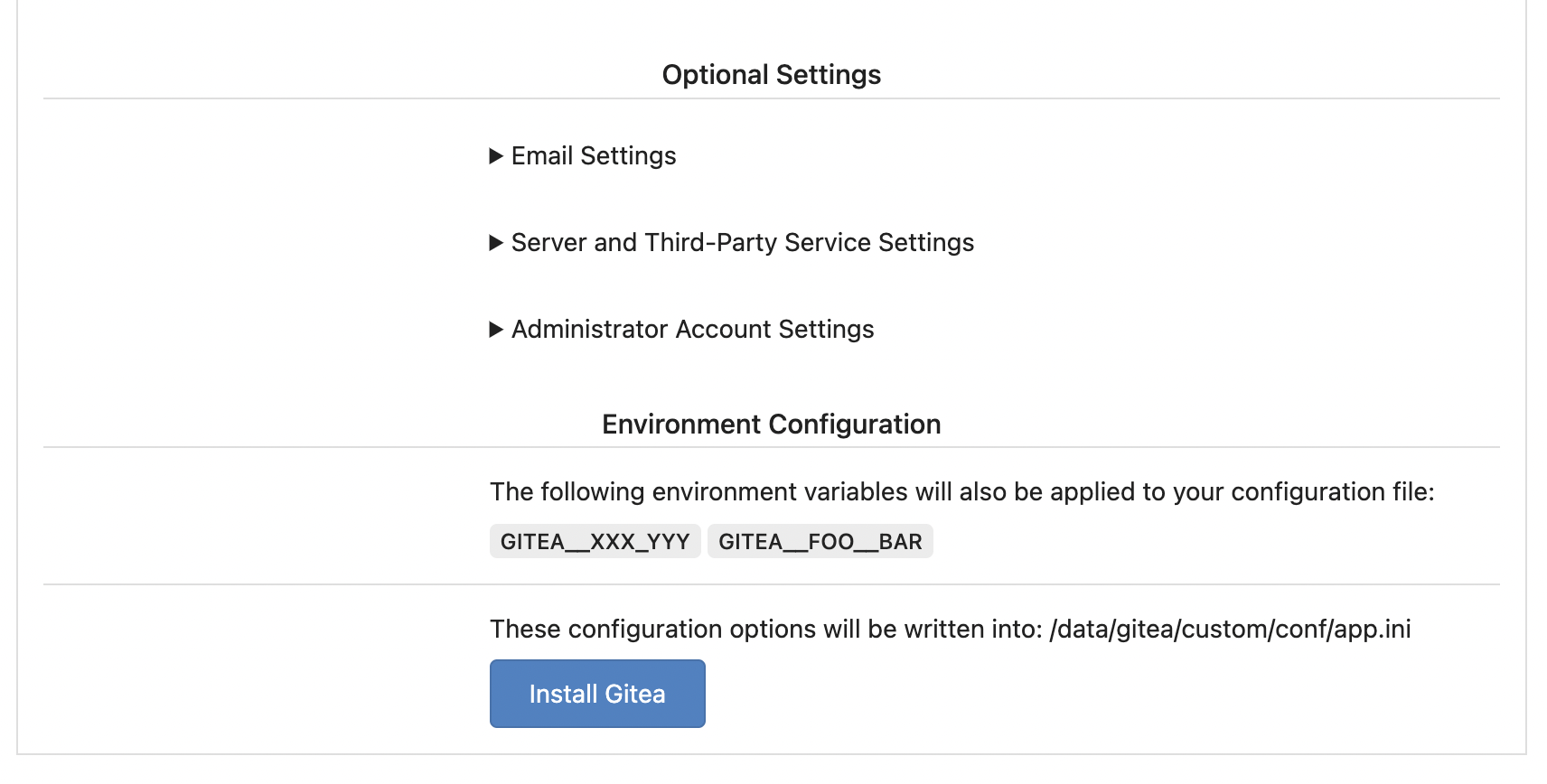Before, in dev mode, there might be some error logs like:
```
2023/07/17 13:54:51 ...s/assetfs/layered.go:221:WatchLocalChanges() [E] Unable to watch directory .: lstat /data/work/gitea/custom/templates: no such file or directory
```
Because there is no "custom/templates" directory.
After: ignore such error, no such error message anymore.
Replace #25580Fix#19453
The problem was: when users set "GITEA__XXX__YYY" , the "install page"
doesn't respect it.
So, to make the result consistent and avoid surprising end users, now
the "install page" also writes the environment variables to the config
file.
And, to make things clear, there are enough messages on the UI to tell
users what will happen.
There are some necessary/related changes to `environment-to-ini.go`:
* The "--clear" flag is removed and it was incorrectly written there.
The "clear" operation should be done if INSTALL_LOCK=true
* The "--prefix" flag is removed because it's never used, never
documented and it only causes inconsistent behavior.

The idea is to use a Layered Asset File-system (modules/assetfs/layered.go)
For example: when there are 2 layers: "custom", "builtin", when access
to asset "my/page.tmpl", the Layered Asset File-system will first try to
use "custom" assets, if not found, then use "builtin" assets.
This approach will hugely simplify a lot of code, make them testable.
Other changes:
* Simplify the AssetsHandlerFunc code
* Simplify the `gitea embedded` sub-command code
---------
Co-authored-by: Jason Song <i@wolfogre.com>
Co-authored-by: Lunny Xiao <xiaolunwen@gmail.com>